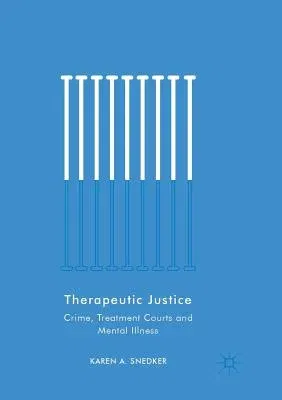Karen A Snedker
(Author)Therapeutic Justice: Crime, Treatment Courts and Mental Illness (Softcover Reprint of the Original 1st 2018)Paperback - Softcover Reprint of the Original 1st 2018, 29 December 2018

Qty
1
Turbo
Ships in 2 - 3 days
In Stock
Free Delivery
Cash on Delivery
15 Days
Free Returns
Secure Checkout
Print Length
329 pages
Language
English
Publisher
Palgrave MacMillan
Date Published
29 Dec 2018
ISBN-10
3030076768
ISBN-13
9783030076764
Description
Product Details
Author:
Book Edition:
Softcover Reprint of the Original 1st 2018
Book Format:
Paperback
Country of Origin:
NL
Date Published:
29 December 2018
Dimensions:
21.01 x
14.81 x
1.85 cm
ISBN-10:
3030076768
ISBN-13:
9783030076764
Language:
English
Location:
Cham
Pages:
329
Publisher:
Weight:
421.84 gm

